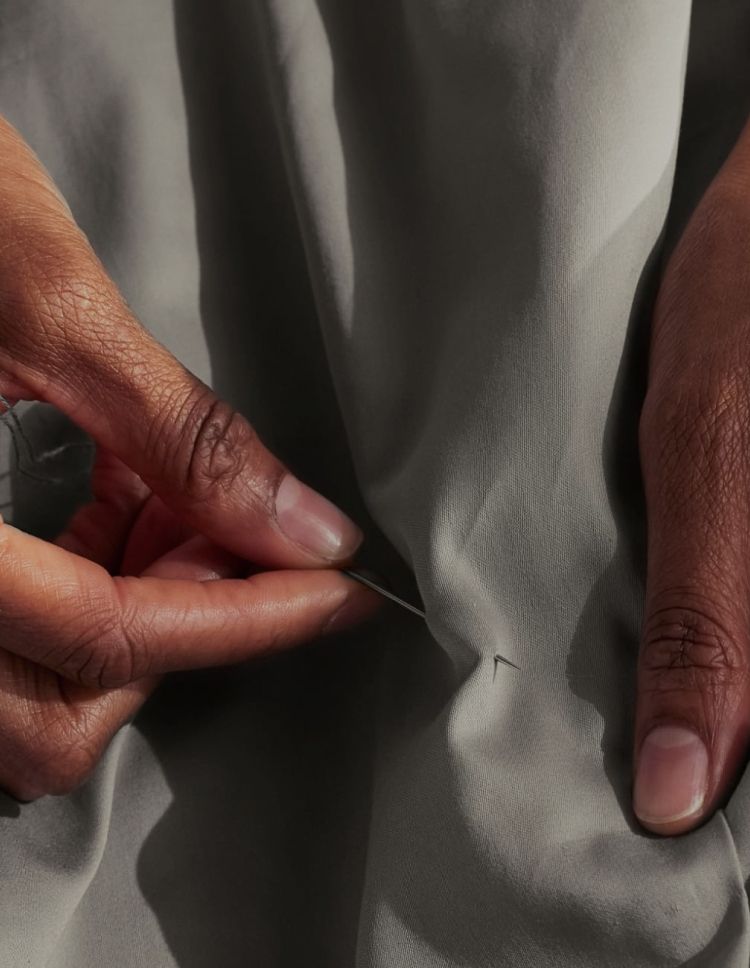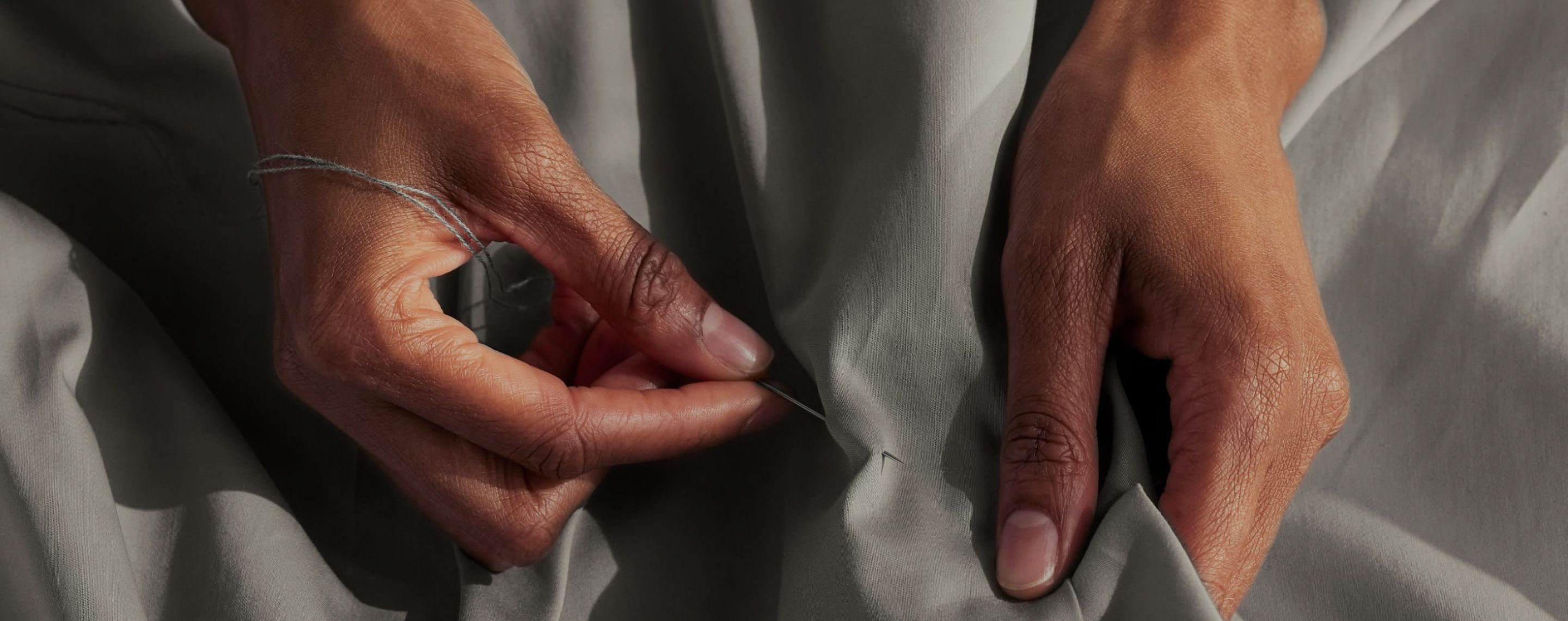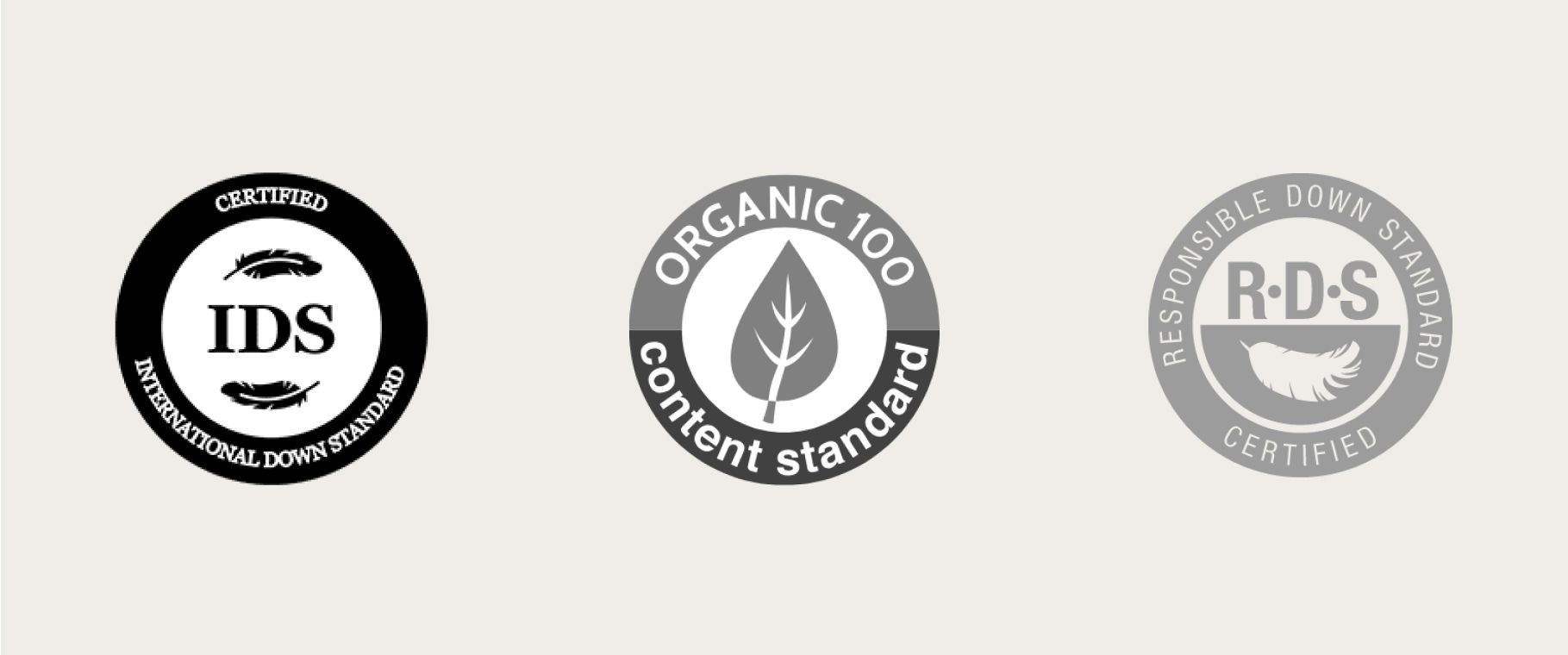
IDS
The IDFL Down Standard (IDS) requires that all down and feathers are inspected and tested to ensure each step of product creation meets the highest standards of quality and animal welfare. Simply put, this means our down and feather products are 100% traceable and ethically sourced.
OCS
The Organic 100 Content Standard (OCS) uses third-party verification to ensure that products contain at least 95% certified organic materials through all stages of harvesting and manufacturing, and aims to increase organic agricultural production. Simply put, this ensures organic fibers are used from the farm to our final products.
RDS
The Responsible Down Standard (RDS) aims to protect ducks and geese used for down by treating them humanely. and gives companies and consumers a way of knowing what's in the products they buy. This ensures to the highest possible standard that the down and feathers we use don't come from animals that have been subjected to unnecessary harm.
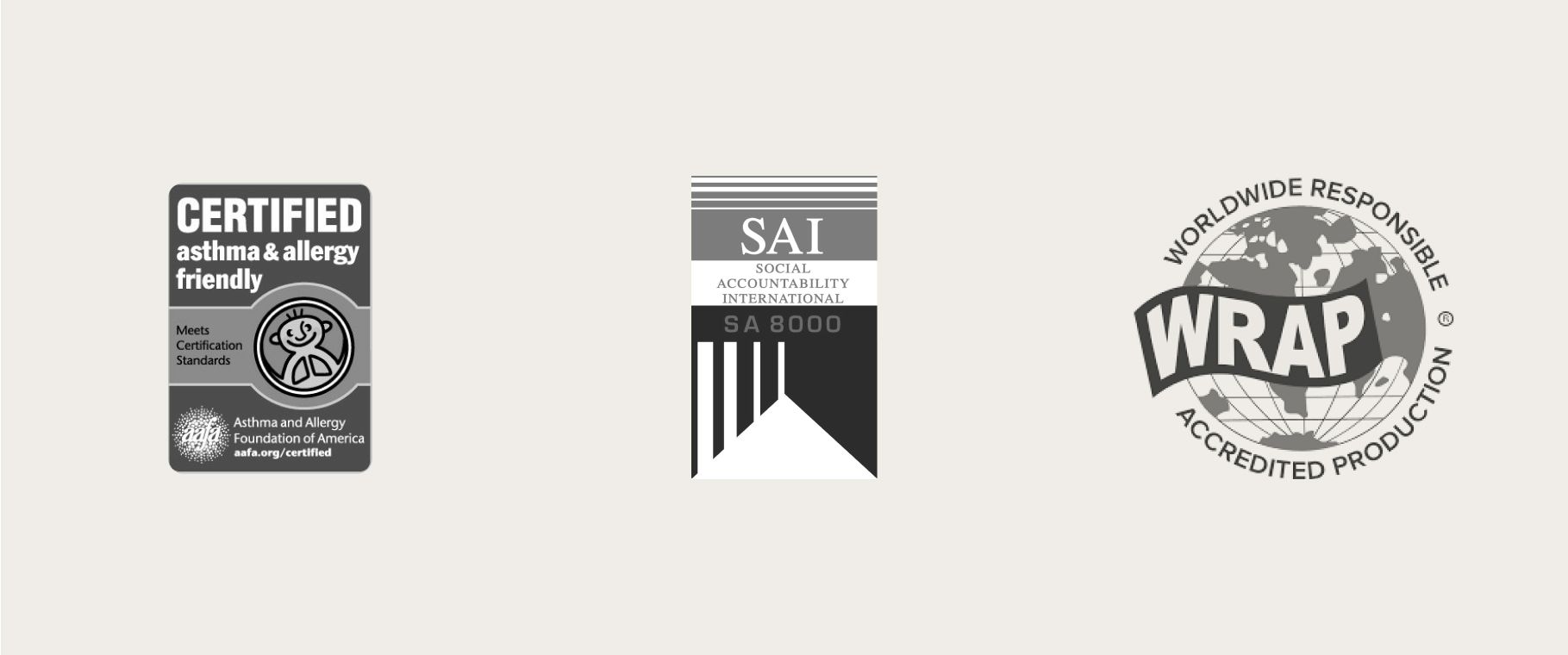
AAFA
The Asthma & Allergy Friendly® certification, given by the Asthma and Allergy Foundation of America (AAFA), tests household products for allergy and asthma irritants. Our products that bear this label have a certificate, a unique certification code, and the Asthma & Allergy Friendly® mark, so our customers can rest assured these products won't activate their asthma or allergies.
SA8000®
The SA8000 Standard helps secure ethical working conditions for millions of workers globally. Established by Social Accountability International, the Standard leverages the power of businesses and consumers to purchase products or services from workplaces that enrich the livelihoods of people.
WRAP
Worldwide Responsible Accredited Production (WRAP) promotes safe, lawful, humane, and ethical manufacturing around the world through a comprehensive audit and certification program of production units. Simply put, this means our factories and facilities go through a rigorous audit to ensure they meet our high standards of care.
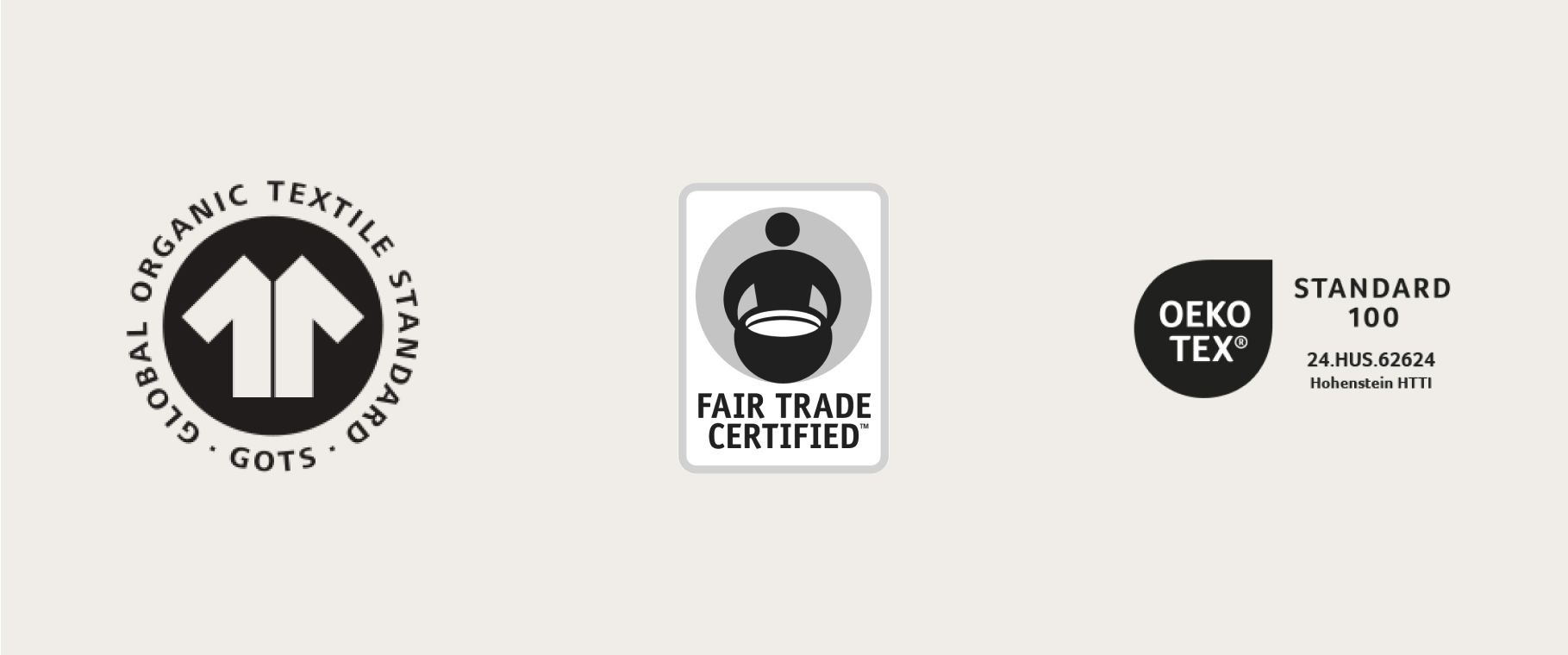
GOTS
The Global Organic Textile Standard (GOTS) is the worldwide leading textile processing standard for organic fibers and ensures a product is made the right way—not the easy way—at every single step. For us, this means our products are made from organic materials, in an environmentally friendly way, by workers who are paid and treated fairly. Every Boll & Branch employee is onboarded with our GOTS certification requirements.
Fair Trade
Fair Trade Certified™ sets standards to promote safe working conditions and improved livelihoods for farmers and factory workers in developing nations through fair wages and premiums. This means everyone who works in a Fair Trade Certified Factory on a Boll & Branch product is paid and treated fairly.
OEKO-TEX
The OEKO-TEX® STANDARD 100 is an independent testing and certification system for raw, semi-finished, and finished textile products at all processing levels. It takes into account important legal regulations, and ensures each product is rigorously tested against up to 350 toxic chemicals. For us, this means our products do not contain any harmful substances or chemicals.
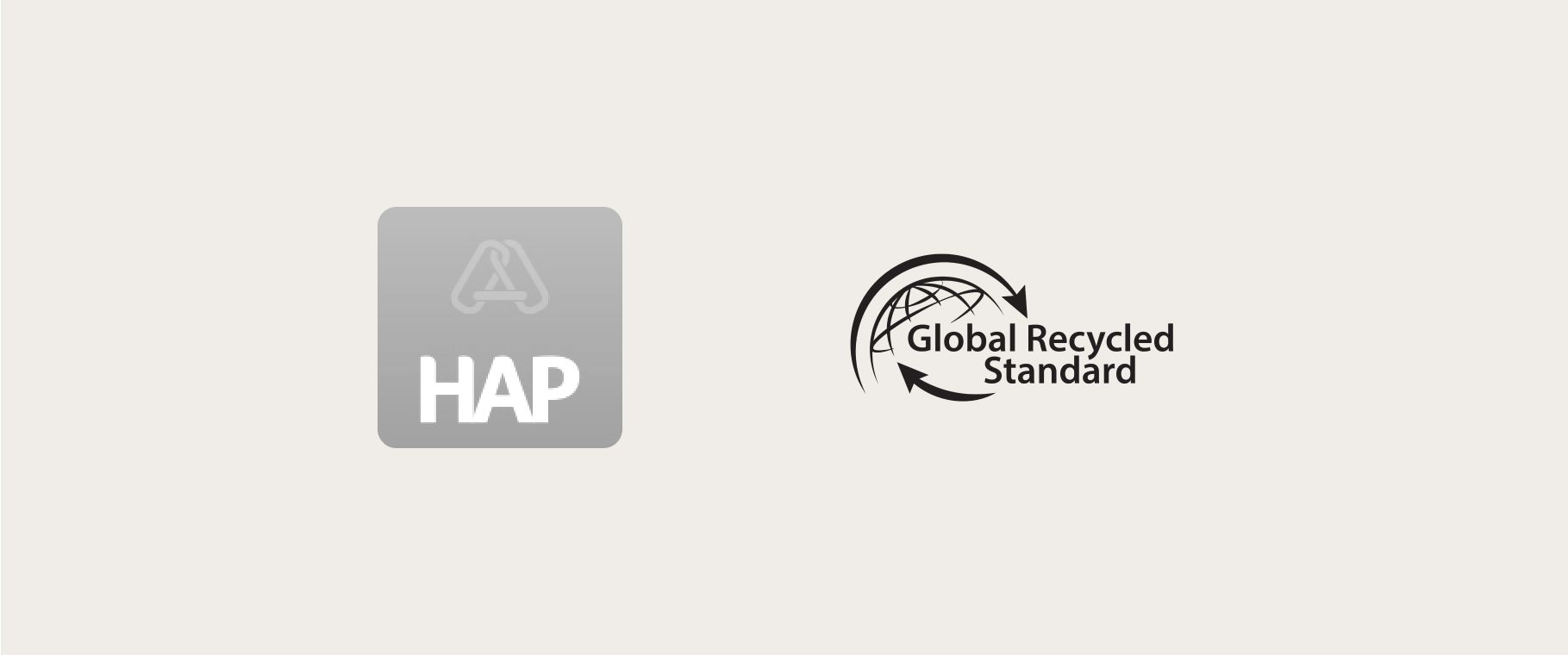
HAP
HireAPartner (HAP) is a supply chain compliance platform. Through this platform, we've partnered with specialized suppliers who are committed to the same mission as us-creating a better, more transparent, and sustainable supply chain. For us, this means that all suppliers have met every legal requirement and adhere to the Boll & Branch Vendor Code of Conduct.
GRS
The Global Recycled Standard (GRS) is a standard for tracking and verifying the content of recycled materials in a final product, while reducing the harmful impact of production on people and the environment. For us, this means our products are thoughtfully crafted to contain recycled materials. We have been as a supporter level member of the Textile Exchange since 2015, and participate in their Annual Corporate Materials Benchmark.
